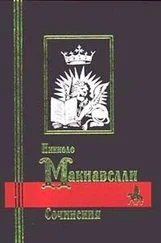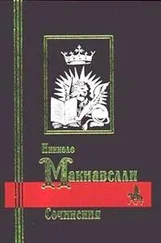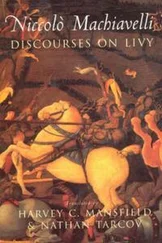Other poems include Sonetti, Canzoni, Ottave, and Canti carnascialeschi.
Editions. Aldo, Venice, 1546; della Tertina, 1550; Cambiagi, Florence, 6 vols., 1782–5; dei Classici, Milan, 10 1813; Silvestri, 9 vols., 1820–2; Passerini, Fanfani, Milanesi, 6 vols. only published, 1873–7.
Minor works. Ed. F. L. Polidori, 1852; Lettere familiari, ed. E. Alvisi, 1883, 2 editions, one with excisions; Credited Writings, ed. G. Canestrini, 1857; Letters to F. Vettori, see A. Ridolfi, Pensieri intorno allo scopo di N. Machiavelli nel libro Il Principe, etc.; D. Ferrara, The Private Correspondence of Nicolo Machiavelli, 1929.
Chapter I
How Many Kinds of Principalities There Are, and by What Means They Are Acquired
All states, all powers, that have held and hold rule over men have been and are either republics or principalities.
Principalities are either hereditary, in which the family has been long established; or they are new.
The new are either entirely new, as was Milan to Francesco Sforza, or they are, as it were, members annexed to the hereditary state of the prince who has acquired them, as was the kingdom of Naples to that of the King of Spain.
Such dominions thus acquired are either accustomed to live under a prince, or to live in freedom; and are acquired either by the arms of the prince himself, or of others, or else by fortune or by ability.
Chapter II
Concerning Hereditary Principalities
I will leave out all discussion on republics, inasmuch as in another place I have written of them at length, and will address myself only to principalities. In doing so I will keep to the order indicated above, and discuss how such principalities are to be ruled and preserved.
I say at once there are fewer difficulties in holding hereditary states, and those long accustomed to the family of their prince, than new ones; for it is sufficient only not to transgress the customs of his ancestors, and to deal prudently with circumstances as they arise, for a prince of average powers to maintain himself in his state, unless he be deprived of it by some extraordinary and excessive force; and if he should be so deprived of it, whenever anything sinister happens to the usurper, he will regain it.
We have in Italy, for example, the Duke of Ferrara, who could not have withstood the attacks of the Venetians in '84, nor those of Pope Julius in '10, unless he had been long established in his dominions. For the hereditary prince has less cause and less necessity to offend; hence it happens that he will be more loved; and unless extraordinary vices cause him to be hated, it is reasonable to expect that his subjects will be naturally well disposed towards him; and in the antiquity and duration of his rule the memories and motives that make for change are lost, for one change always leaves the toothing for another.
Chapter III
Concerning Mixed Principalities
But the difficulties occur in a new principality. And firstly, if it be not entirely new, but is, as it were, a member of a state which, taken collectively, may be called composite, the changes arise chiefly from an inherent difficulty which there is in all new principalities; for men change their rulers willingly, hoping to better themselves, and this hope induces them to take up arms against him who rules: wherein they are deceived, because they afterwards find by experience they have gone from bad to worse. This follows also on another natural and common necessity, which always causes a new prince to burden those who have submitted to him with his soldiery and with infinite other hardships which he must put upon his new acquisition.
In this way you have enemies in all those whom you have injured in seizing that principality, and you are not able to keep those friends who put you there because of your not being able to satisfy them in the way they expected, and you cannot take strong measures against them, feeling bound to them. For, although one may be very strong in armed forces, yet in entering a province one has always need of the goodwill of the natives.
For these reasons Louis the Twelfth, King of France, quickly occupied Milan, and as quickly lost it; and to turn him out the first time it only needed Lodovico's own forces; because those who had opened the gates to him, finding themselves deceived in their hopes of future benefit, would not endure the ill–treatment of the new prince. It is very true that, after acquiring rebellious provinces a second time, they are not so lightly lost afterwards, because the prince, with little reluctance, takes the opportunity of the rebellion to punish the delinquents, to clear out the suspects, and to strengthen himself in the weakest places. Thus to cause France to lose Milan the first time it was enough for the Duke Lodovico [1] Duke Lodovico was Lodovico Moro, a son of Francesco Sforza, who married Beatrice d'Este. He ruled over Milan from 1494 to 1500, and died in 1510.
to raise insurrections on the borders; but to cause him to lose it a second time it was necessary to bring the whole world against him, and that his armies should be defeated and driven out of Italy; which followed from the causes above mentioned.
Nevertheless Milan was taken from France both the first and the second time. The general reasons for the first have been discussed; it remains to name those for the second, and to see what resources he had, and what any one in his situation would have had for maintaining himself more securely in his acquisition than did the King of France.
Now I say that those dominions which, when acquired, are added to an ancient state by him who acquires them, are either of the same country and language, or they are not. When they are, it is easier to hold them, especially when they have not been accustomed to self–government; and to hold them securely it is enough to have destroyed the family of the prince who was ruling them; because the two peoples, preserving in other things the old conditions, and not being unlike in customs, will live quietly together, as one has seen in Brittany, Burgundy, Gascony, and Normandy, which have been bound to France for so long a time: and, although there may be some difference in language, nevertheless the customs are alike, and the people will easily be able to get on amongst themselves. He who has annexed them, if he wishes to hold them, has only to bear in mind two considerations: the one, that the family of their former lord is extinguished; the other, that neither their laws nor their taxes are altered, so that in a very short time they will become entirely one body with the old principality.
But when states are acquired in a country differing in language, customs, or laws, there are difficulties, and good fortune and great energy are needed to hold them, and one of the greatest and most real helps would be that he who has acquired them should go and reside there. This would make his position more secure and durable, as it has made that of the Turk in Greece, who, notwithstanding all the other measures taken by him for holding that state, if he had not settled there, would not have been able to keep it. Because, if one is on the spot, disorders are seen as they spring up, and one can quickly remedy them; but if one is not at hand, they are heard of only when they are great, and then one can no longer remedy them. Besides this, the country is not pillaged by your officials; the subjects are satisfied by prompt recourse to the prince; thus, wishing to be good, they have more cause to love him, and wishing to be otherwise, to fear him. He who would attack that state from the outside must have the utmost caution; as long as the prince resides there it can only be wrested from him with the greatest difficulty.
Читать дальше












